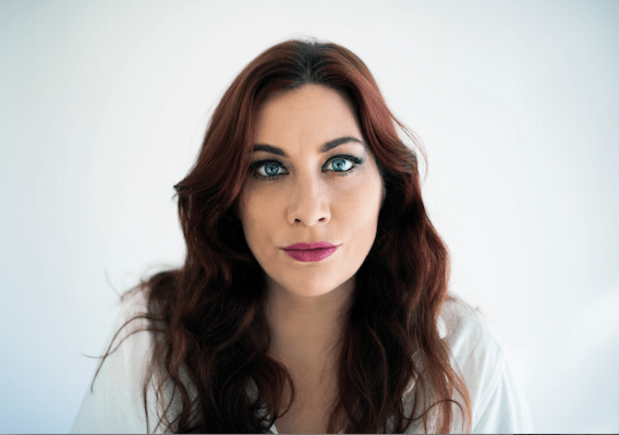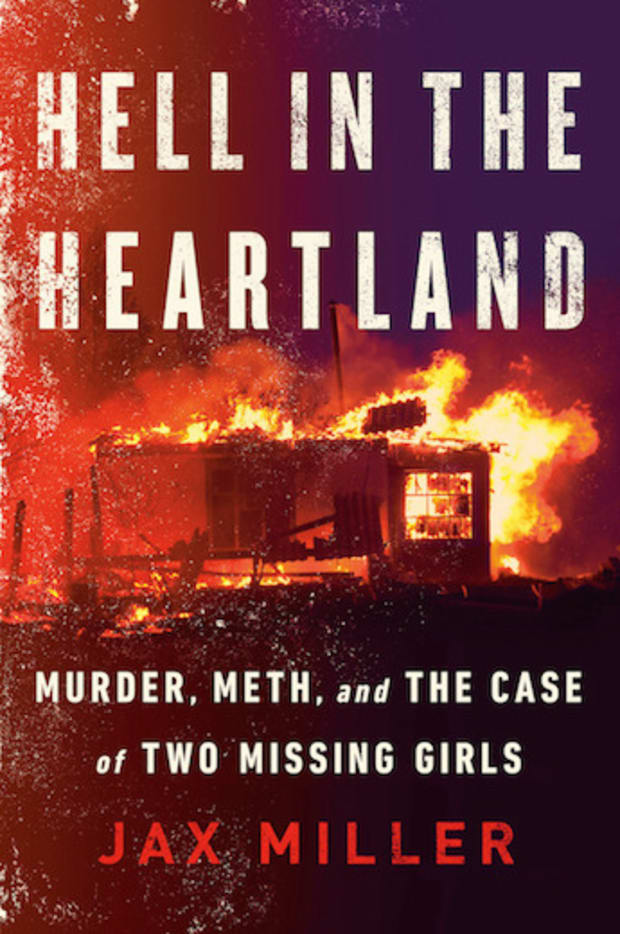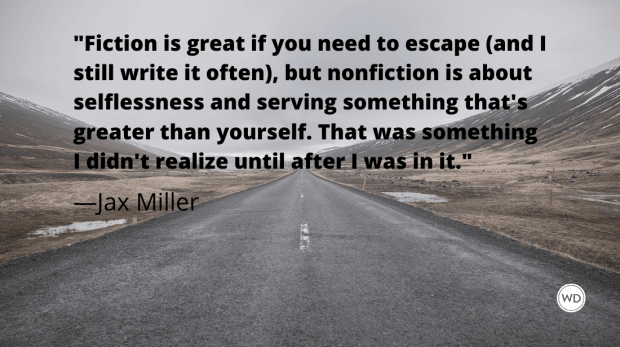In this post, Miller shares what inspired her to switch writing genres (from fiction to true crime), move to Oklahoma, sit with convicted murderers and in meth labs, and more!
Jax Miller is an American author. While hitchhiking across America in her 20s, she wrote her first novel, Freedom’s Child, for which she won the 2016 Grand Prix des Lectrices de Elle and earned several CWA Dagger nominations. She has received acclaim from the New York Times, NPR, Entertainment Weekly, and many more.

She now works in the true crime genre, having penned her much anticipated book and acting as creator, host, and executive producer on the true crime documentary series Hell in the Heartland on CNN’s HLN network. Jax is a lover of film and music, and has a passion for rock ‘n’ roll and writing screenplays.
(21 authors share one piece of advice for writers.)
In this post, Miller shares what inspired her to switch writing genres (from fiction to true crime), move to Oklahoma, sit with convicted murderers and in meth labs, and more!
*****

Research, interview, and explore the subjects that interest you. Then write about what you’ve learned in Writing Nonfiction 101: Fundamentals. Writing nonfiction is a great way for beginner and experienced writers to break into the publishing industry.
*****
Name: Jax Miller
Literary agent: Zoe Sandler of ICM (US); Emma Finn of C+W Agency (UK)
Book title: Hell in the Heartland: Murder, Meth, and The Case of Two Missing Girls
Publisher: Berkley/PRH (USA); HarperCollins (UK)
Release date: July 28, 2020
Genre: True Crime/Nonfiction
Previous title: Freedom’s Child

Elevator pitch for the book: An author travels to rural Oklahoma to try and uncover what really happened to a murdered family and two missing teenagers.
What prompted you to write this book?
What brought me to this story and what kept me here are two different things. At the start, I was drawn to it strictly from a storytelling point of view: It was a stranger-than-fiction story that was rich in plot and in setting (read: boundless prairies and abandoned lead-mining cities). But it was my first time writing in the true crime genre and with that came a naiveté, because once I started, I became obsessed and I had to see it through as far as I could.
(8 ways to prepare to write your nonfiction book in a month.)
Over time, I formed close relationships with the families of missing friends, Lauria Bible and Ashley Freeman and many others across Oklahoma. I had the luxury of leaving any time I wanted, but they didn’t—they still searched tirelessly for their loved ones. Once I came to really grasp that concept, I wanted to sit with them in the trenches.
How long did it take to go from idea to publication?
The idea to switch from fiction to nonfiction came in 2014 or 2015, but after weighing out several other real-life cases, I chose the Bible-Freeman case. It haunted me for years. I was living in Ireland and I called Lorene Bible, the mother of missing child, Lauria Bible. She gave me her blessing to write the book and the rest is history. The only next logical step, therefore, was to go to Oklahoma for the first time and see what I could dig up. Now it’s become a second home.
The ideas changed constantly because the story changed constantly. I’d seen it go through different sheriffs, different agents, different suspects, so it takes a lot of mind changing and willingness to evaluate new theories that go against your previous beliefs. I’ve learned that in writing about cases that are this active, you have to be open-minded and careful not to settle on ideas.

Were there any surprises or learning moments in the publishing process for this title?
The process with this book was longer than what I’d experienced in fiction, mostly because of how much time it took to research. I never had any intentions of writing from a desk, so I spent several years knocking on doors, conducting interviews, being away from home. That was the most-time consuming part, especially because I took on this “When in Rome” approach.
I didn’t want to bring this story to readers, I wanted to bring readers into the story, and to do that, I had to write from the heart of Oklahoma and become like one of them.
I’m thankful for the amazing team I had, because with such an active case, there were always changes that had to be made post-submission. “Hey, so-and-so’s no longer in prison.” “Can we make note of this person just passing away?” “This person decided to go on record.” I’m sure I drove them nuts at times.
Were there any surprises in the writing process for this book?
Fiction and nonfiction satisfy two very different beasts in me: With fiction, there’s this beautiful escapism so that I don’t have to face reality, and with nonfiction, it’s a cold, deep plunge into someone else’s. Fiction is great if you need to escape (and I still write it often), but nonfiction is about selflessness and serving something that’s greater than yourself. That was something I didn’t realize until after I was in it.
(How I interviewed a serial killer and stayed sane.)
The work for this book required sitting with convicted murderers, sitting in meth labs, and getting into some sticky situations. So needless to say, that world was full of surprises.
It did nothing for my mental health, which I open up about in the book. But I really did finish the last chapter a changed woman. Dare I say, stronger, and much of that had to do with Mrs. Bible and her to-Hell-and-back crusade to find her daughter.
What do you hope readers will get out of your book?
I hope readers will start a conversation: What did happen to Lauria Bible and Ashley Freeman?
On a local level, while authorities made their first arrest in 2018, there are still people with information, possibly more that need to be held accountable. Raising awareness with this story has helped garner tips and information in the past, and if this book can help in some small way, I hope it does.
If you could share one piece of advice with other authors, what would it be?
March to the beat of your own drum.
Be First to Comment